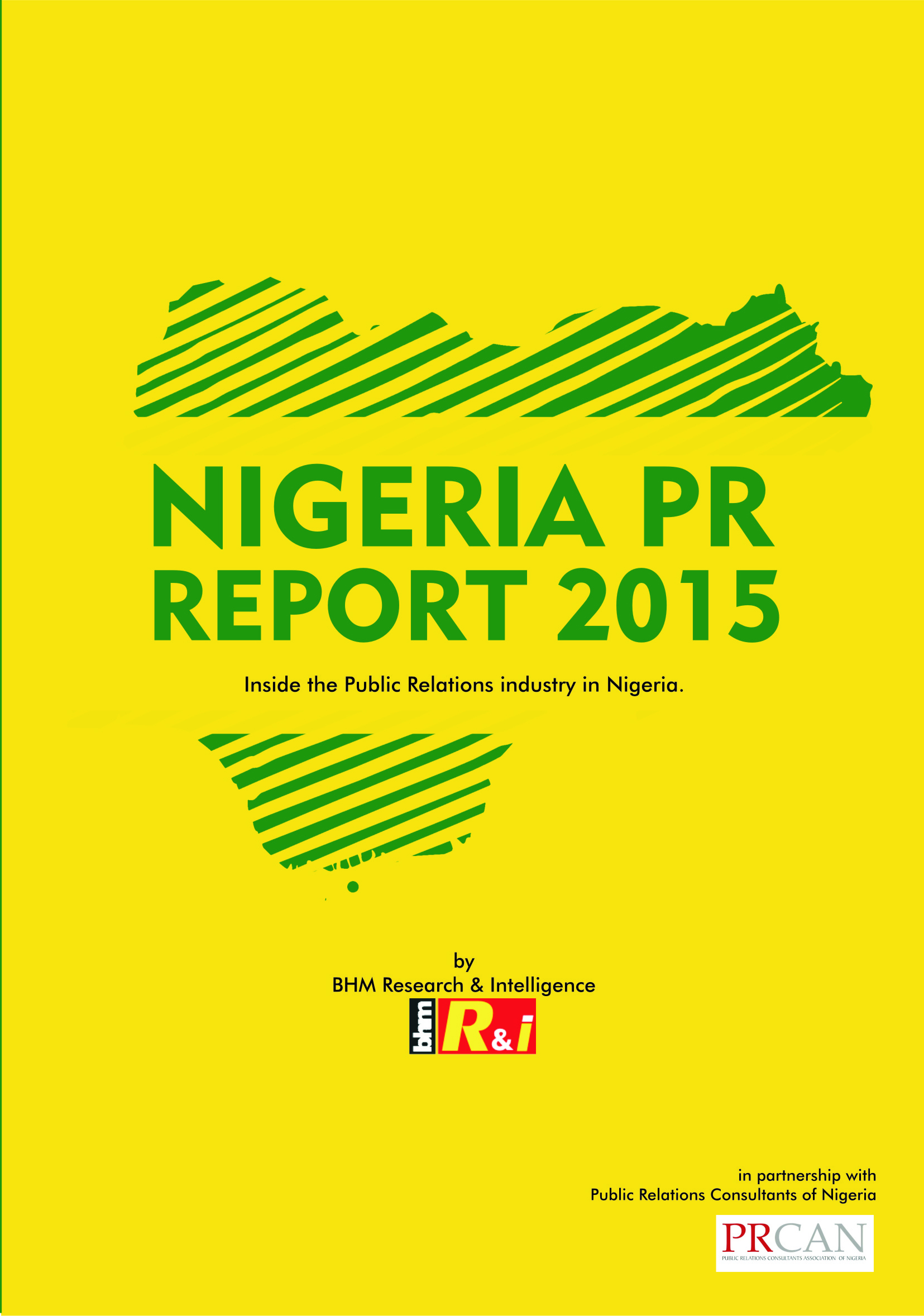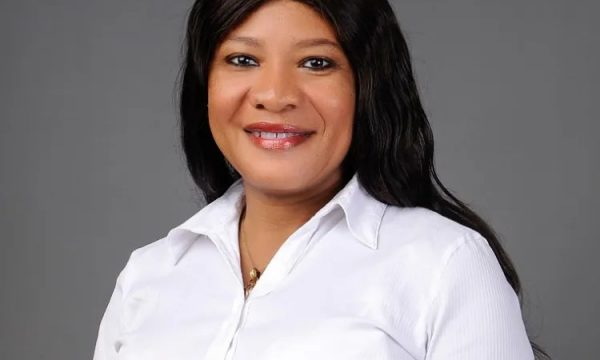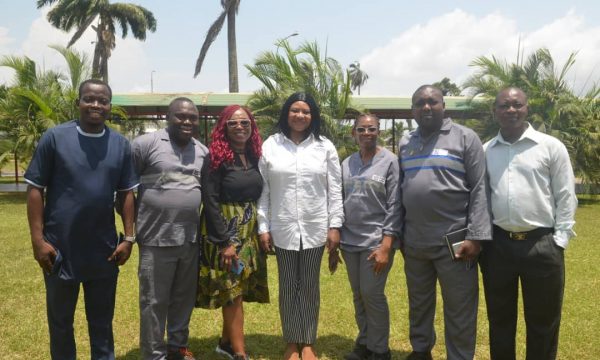
By: Ikem Okuhu
- Adekunle Ayeni and his BlackHouse Media released Nigeria’s first report on the PR industry
- Report says industry not doing too good
- Blames are heaped on client not willing to pay and the media for “brown envelops” demand
- But report had a little too much about the publisher and what others are not doing to help
Sometime last year, I got an invite to attend a meet-up put together by BlackHouse Media Group, a real fast runner led by Adekunle Ayeni. The meeting was for the purpose of discussing the issue of Public Relations in Nigeria.
With the theme, “PR is Dead,” the invite quickly got my interest. Why would a company doing the business of PR suddenly wake to declare that the industry that was providing him fame and fortune (Ayeni would seize every moment to talk about his rags-to-riches story, all thanks to this profession) was dead?
I therefore took more than a reporter’s interest on the invite and even went as far as presenting it at a meeting I had with my partners, Sola Fanawopo and Razarck Olaegbe.
We were shocked that something like that was coming from an industry player. Although most people in and outside the industry were already of the view that PR was sliding, we reasoned that such should not come from “inside the house.”
But about 20 minutes into the discussion, we concluded it was either Ayeni and his BHM were packaging something very creative for a client and had come up with a provocative theme to arrest attention or the company was veering off PR and thought the best way was to send out such a sensational message to arrest eyeballs and bring people to the event.
Either way, I thought it was not good enough and I decided there and the, against the strong views of Sola and Razarck, not to attend.
But that did not quell my curiosity as I had to inquire from fellow brand writers who attended about what eventually transpired at the vent. It was then I learnt I was wrong. Information that reached me then spoke of how this young, creative practitioner was using the event to draw attention to how Nigerian players are refusing to grow with the rest of the world in the practice by remaining rooted in the past.
So when I got the second invitation to attend the unveil of the agency’s report on the Nigerian Public Relations industry on Friday, January 29th, 2016, I made a mental note to be there and on time too.
The operatives of the Federal Road Safety Corps (FRSC) who stopped me on my way demanding the original of my drivers’ license (I carry photocopies and not the original and no one had ever questioned me on that before since the law says I have 24 hours to produce it if that is critical) and my motor vehicle insurance (somehow, this got missing from my car but I have always made it my business to buy Comprehensive Insurance).
With my phone, I went to the Nigerian Insurance Industry Database and showed was able to produce the insurance cover for my car but this operative was more interested in having the printed copy.
For him, what I showed him online was not enough. And this is a great part of the problem with the Nigerian PR industry – thinking analogue in a digital age. We will get to this later, but suffice that I was able to extricate myself from these guys and get to the venue of the BHM event just about five minutes later the event started even though I arrived about one hour 20 minutes after the scheduled time (lateness is another problem of PR here).
The event started and after a few minutes, the panel that was to discuss PR in Nigeria was constituted. It included, Ayeni himself, Yomi Badejo-Okusanya of CMC Connect; John Ehiguese of Mediacraft, and Mojisola Saka of Soulcomm Publicis.
Microphones passed from one moderator to another and in five minutes, it was clear to me that PR would rather blame everyone by the practice on the challenges facing the profession. Key issues challenging the practice in Nigeria, from the discussions include:
- Brown envelopes: Ayeni laid the strongest emphasis on this and was certain that brown envelop journalism, a name for the monies given to reporters to facilitate the planting of stories was inimical to PR practice. For him, such monies amount to bribery and most clients will not permit that, leaving agencies to innovate on how best to capture that and ensure it is paid for.
- Poor respect for PR: Discussants were strongly inclined to think that most clients do not have a lot of respect for PR practice and are willing to pay so little for so much jobs
- Divergence: Event management or what is now better known as Experiential Marketing and Digital explosion were also a factor as most people these days consume information across the digital ecosystem rather than the traditional media.
- Content: They also believe the dearth in content and the increasing decrease in the number of good content creators have affected the fortunes of the profession.
The bitter truth
While these points as presented are clear challenges facing the industry, it is impossible to outsource the blame completely. Brown envelop journalism started growing, not essentially because media practitioners demanded it. On the contrary, it spread because practitioners were offering them.
You see, as PR grew and the need to reach the public with news and information multiplied, newspaper spaces did not increase. Prioritizing news also was limited. This created very serious competition among PR practitioners. So to have your voice out there (it is called top of mind or voice share), PR invented this inducement. Fact is that the bulk of material emanating from PR to media is mere announcements and really contained no real news at all. But because they needed clippings for client to pay, media became increasingly compromised. If PR wants to measure this, let them stop giving brown envelops. The outcome will be that 70 percent of the material in our news media today will not qualify to make news and journalists, compromised already to the point of almost total dependence on PR feeds while abandoning investigative journalism, will begin to write again.
Clients pay for value. In an environment where “who-you-know” rather than competence is a license for big accounts, how will PR be respected? The truth about clients not respecting PR is that most of the time, PR activates what clients want as against what clients need. As a consultant, you are supposed to be an expert who advises clients on how best to interpret briefs and communications challenges. But when clients tell you exactly what to do, how to do it and even craft the material you distribute, how much respect do you expect under such circumstances.
John Ehiguese the MD of Mediacraft noted the challenge storytelling and content are presenting to an industry increasingly lacking the deep pocket to retain talent
Divergence is not a problem for PR. Divergence is what made the world economy grow. Before now, Physics, Astronomy, Medical Sciences and all the sciences were all Philosophy. Can anyone imagine if all doctors and scientists from all the spheres were still philosophers today?
Even those that diverged from PR are still essentially PR but “PR” does not seem to know. I find it hard to understand someone saying the person doing Digital PR is not PR. It even sounds funny. But what is happening is that PR is so rooted in the past it has refused to upgrade. And when anyone comes in with new knowledge and does things differently, we begin to moan rather than increase pace to catch up and even overtake.
We have a dearth on content because PR is also not thinking. There are no good writers any more. The good guys available are not trained to understand the psychographics and even physiographics of today’s reader. So today, we issue one material for every segment of the market. We don’t even care about whether or not there are segments. We write the same press material for The Guardian, This Day, The Punch, Leadership, Daily Trust, The Sun, Linda Ikeji, Bella Naija, Pulse and even Facebook posts.
The Report
Creativity is what keeps the world and the industries that play in it moving from one age to another. But even in the midst of a world that thrives on creativity and innovation, there are a few constants.
I devoted an entire weekend to digest the “Nigeria PR Report 2015: Inside the Public Relations Industry in Nigeria” but when I picked the report on Saturday to begin what I had thought was a long weekend journey, I found out that I was able to finish the entire book in less than two hours. I went back to it on Sunday morning and was also able to finish it in less time.
Verdict? It may have been the first of such Reports on the industry in Nigeria, but I expected a lot more.
Back to what I said about creativity, I have never seen a report written in the first person. Remember I noted that we live in a word whose wheels are rolled by creativity and reinventions? But no matter how much you reinvent a wheel, it must have to be round. If you like, make yours all metal, if you like add rubber, you may choose to make your with tube or tubeless, the end MUST certainly be something round.
Ayeni Adekunle: Brave effort but there was just too much about his own company and his person to make the Report an acceptable”industry Report”
But that was the biggest error in the report released by BHM. You do not write such reports in the first person. But paragraph after paragraphs, chapter after chapter, page after page, I kept reading Adekunle Ayeni. But I wanted to read the Nigeria PR Report!
Reports of this nature are meant to be non-personal, based on facts and research. But even with all the research, the moment you present it by using the pronouns of “I”, “We”, “Us”, the message you are sending out is that you are merely presenting your personal opinion. As knowledgeable as you may be, this will certainly send the wrong message.
BHM is in business to make money. This means that even with this, otherwise selfless job of producing the first report on the country’s PR practice, there are expectations of increased brand profile and with it, bigger businesses, there seemed to be too much “Ayeni “Adekunle” in a book created to project the industry.
Why would most of the chapters (or sections) in the report be signed off by the founder of this agency or in some instances, by his staff? In the end, what we have are very strong opinions of the people that worked on the project than a dispassionate, depersonalized report.
I also suspect that there was a deliberate attempt to “carry the industry along.” I was not in the any of the strategy sessions that produced report but I am sure someone must have mentioned how the industry might “fight” the outcome.
So to overcome this, generous doses of content were devoted to appeal to the industry leaders, especially the Public Relations Consultants Association of Nigeria (PRCAN). Pages 34 to 44 of the report was exceptionally devoted for this purpose and it comes out obviously superfluous.
Let us look at this paragraph:
“Chido Nwakanma was still president of Public Relations Consultants Association of Nigeria (PRCAN) when we sat in my office at BlackHouse Media in 2014. BHM, where I am currently CEO, was launching Nigeria’s first mobile application and Nwakanma attended with the Association’s excos…”
I am not sure I needed to read this in a report of the kind in which it was contained. Maybe in Ayeni’s memoir. But certainly not an industry report. The paragraph looked like the real intention was to announce that senior PRCAN members visited BHM, perhaps to drink from a scarce fountain of knowledge.
I am not also sure addressing Nwakanma this way shows respect nor would it make such a senior in the profession feel any good. BHM was mentioned in the Report practically on every page, but here, no mention of what Nwakanma, the Managing Director of Blueflower PR, does for a living beyond other than that he is former PRCAN President. Or is it the case of ‘I cannot begin to market competition in my own book?
Pages 38 to 40 were also generously dedicated to manage the egos of senior PRCAN members. The report here lamented the influx of non-registered members into the practice. It also talked about the way foreign agencies are getting briefs in Nigeria. Drawing generously from the example laid by Association of Advertising Agencies of Nigeria (AAAN), Ayeni thinks regulating practice was very important.
But I am sure that BHM was already in the business during the AAAN crises. I am also sure he is aware that the foreign agency that provoked the fight, Scanad, also worked with PRCAN member agencies for all the work that they did to ensure AAAN did not have its way. So how come the AAAN example has become a convenient milestone to copy?
In all, I found only 30 pages of the report useful and they are pages 64 to 94. That is essentially being very generous because the stats and illustrations here are so tiny it is hard to relate with them. But I battled through.
Page 70 of this report was also very important for me. You see, documents such as this should help fellow practitioners and those outside alike, to plan.
While reviewing the industry revenue for 2014 and 2015, the report stated that “A juxtaposition of 2014 and 2015 revenue indicates that 2015 was a profitable year for some PR agencies despite the wavering Nigerian economic situation.”
I expected this report to have gone further to tell the industry why 2015 was a good year for some agencies. Was it because of a general growth in PR portfolios of as a result of isolated events/occurrences?
I am aware that 2015 was an election year and spend on political messaging was significantly heavy especially in the first quarter. The fight-backs and litigations that followed the outcome of the election, for me, appeared to have significantly driven this revenue rise.
It therefore means that anyone who uses this isolated season to plan for 2016 without the benefit of how it happened and what made it happen just might be in for some huge failure. One strong aspect I would want factored in future reports could just be this.
There were also signs that the report was not well-read by third parties before it came out. As early as the 4th paragraph in the Foreword, an apparent computer glitch or keyboard malfunction caused the letter “H” to be missed in the word, “That.” There were more than 20 of such typos in the Report, suggesting no other person reviewed it apart from the writer.
I am also not sure I agree with Ayeni writing the Foreword to his own book. A foreword is, by standards, “(a usually short piece of writing) … typically written by someone other than the primary author.” This definition is not mine. It is from the owners of the language.
This means that Ayeni should NEVER have written the Foreword to this Report. Another industry player should have been approached to do this. After all, that is what PR does – create the impression of third party infusion to news and information. I don’t know how many people will believe a story or information item that was signed off by a PR agency.








